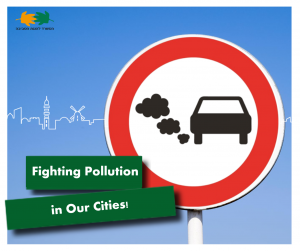Climate Action


Home » Climate Action » SDG 13 – Climate Action Hanging by a Thread
SDG 13 – Climate Action Hanging by a Thread
It’s been about a month now since COP27 in Sharm ended with a “loss and damage fund” agreement and a vague outcome regarding decarbonization obligations; meanwhile, the world has since moved on to Montreal for the UN Biodiversity Conference hoping for more success there. In short: from conference to conference, SDG13 is still hanging by a thread.
Israel emerged from COP27 encouraged by the interest its environmental technologies aroused. Below the surface, however, tough policy decisions regarding its global climate action commitments await a new government yet to be formed.
Despite some efforts by the outgoing administration, the climate action cup is overflowing with challenges. Case in point: according to recent comments by the Energy Ministry’s Director General, if Israel is to meet its 30% renewable commitment by 2030 no less than 54 (!) policy measures will have to be approved – by the next government, of course (or perhaps the one after that…).


Is the country headed in the right direction with a government transition on the horizon?
We’ll probably only really know once the OECD’s spring 2023 Environmental Performance Review is published; the first and only such report about Israel came out way back in 2011. But as made clear by the outgoing Environmental Protection Minister, who recently led a delegation to the organization’s headquarters:
“Israel has made progress in the past decade and still has a way to go [re] investment in the environment – which is an investment in health, the economy and quality of life.”
True, climate action and health are very closely tied; indeed, a recently published study by the Health Ministry – which included data of more than one million hospitalized patients from 2011-2020 – indicates an undeniable connection between the climate crisis and a rise in hospitalizations.
That’s one very serious issue that the incoming government will have to look at. Another challenge concerns waste-sorting plants: the original allocation to subsidize such activity, decided upon five years ago, is about to run out. While the Ministry emphasizes that financial support for the plants – which have since demonstrated their profitability – will continue for an additional three years (albeit at reduced scope), local municipalities warn that the planned move will harm their feasibility going forward.
As we’ve pointed out before, climate action is not just about government action; the citizenry must assume responsibility as well. In this context, we were disappointed to learn that the country’s pensions are still heavily invested in fossil fuels. Israelis need to pay attention – and move their money to more climate-friendly investments where possible.
Let’s end with something optimistic: environmental protection activities in an international program created by a Haifa University professor are spreading among Arab and Jewish students throughout Israel. Hopefully, the country’s younger generation will be equipped to handle what is a very uncertain climate future.
Related articles


SDG 13 -Environmental Issues Make a Comeback
Climate Action The jury is still out on whether or not coronavirus restrictions helped or harmed Israel’s environmental protection efforts. On the one hand, data


SDG 13 – Social Impact in New Hands
Climate Action It’s been a couple of weeks since Israel’s new Government took office. That certainly isn’t enough time to gauge which way the SDG


SDG 13 -Cleaning up Israel’s Cities
Climate Action In a previous post we raised the question of whether Israel could successfully jump-start efforts to fight climate change while also combatting the


















